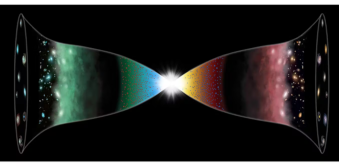In the current landscape of cosmology, we find ourselves in a paradox. Despite decades of theoretical advancements, our most powerful telescopes and the Large Hadron Collider suggest that the universe is simpler than many theorists expected. This raises an essential question: Could the universe truly be predictable at both the largest and smallest scales?
The prevailing theories, namely string theory and cosmic inflation, propose a complex cosmos filled with chaotic variations. However, these frameworks have not yielded successful predictions, leaving many physicists puzzled.
Recent observations challenge this complexity, indicating that the universe’s apparent simplicity may not be an accident. One possibility is that our current observational capabilities are too limited to uncover hidden complexities. Alternatively, we may be be closer than we imagined to understanding the universe’s fundamental nature more clearly than ever.
In pursuit of this clarity, physicists Latham Boyle and Neil Turok (founder of AIMS and current Higgs Chair of Theoretical Physics at the University of Edinburgh) have proposed simpler, more testable theories that do not rely on inflation or string theory. Their approach is strongly guided by the simplicity of the observations rather than complex assumptions, focusing on the symmetry in the basic laws governing light and massless particles. They came up with a testable prediction: “if the dark matter consists of stable, right-handed neutrinos, then one of three light neutrinos that we know of must be exactly massless” (link to full article).
The implications of these findings extend beyond theoretical physics and enlighten by this, Neil Turok encourages younger researchers to challenge established norms and explore alternative explanations rooted in simplicity. While the journey to understand our universe is ongoing, prioritizing observational evidence may finally reveal the answers we have been seeking for so long.
Indeed, the universe may not be as chaotic as once thought. Embracing simplicity could lead us to profound insights, reshaping our understanding of the cosmos.

